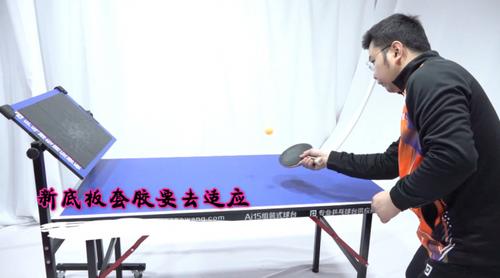乒乓球常见的运动损伤有哪些
Common Misconceptions in Table Tennis
Table tennis, also known as ping pong, is a popular sport enjoyed by millions worldwide. However, like any sport, it comes with its fair share of misconceptions that can hinder players' development and enjoyment of the game. Let's address some of the most common misconceptions:
One of the most prevalent misconceptions in table tennis is that power solely equates to speed. While power is undoubtedly important, especially in offensive play, pure speed without control often leads to errors. Instead, focus on mastering proper technique, timing, and placement to maximize the effectiveness of your shots.
Many players tend to rely heavily on either their forehand or backhand strokes, neglecting the development of the other. However, a wellrounded player should be proficient in both forehand and backhand shots. Practice and improve both sides to become a more versatile and unpredictable player.
Spin is a fundamental aspect of table tennis and is not reserved for advanced players only. Learning to generate and counter different types of spin early in your training will greatly benefit your game. Experiment with topspin, backspin, sidespin, and learn how to read and adapt to your opponent's spin.
While a faster blade can offer increased speed, it also sacrifices control. Choosing the right blade should be based on your playing style, skill level, and preferences. A balanced blade that provides a combination of speed and control will often yield better results than simply opting for the fastest one available.

Some players underestimate the importance of footwork in table tennis, believing that superior handeye coordination alone can suffice. However, efficient footwork is essential for maintaining proper positioning, balance, and readiness to execute shots effectively. Practice footwork drills regularly to improve your agility and positioning on the table.
While playing close to the table can provide certain advantages such as reduced reaction time for the opponent, it's not always the best strategy. Depending on your playing style and the situation, stepping back from the table can offer you more time to prepare and execute powerful shots, especially against aggressive opponents.
Some players believe that natural talent outweighs the importance of practice and dedication. While talent certainly plays a role, consistent practice, proper training, and a growth mindset are key factors in achieving success in table tennis. Hard work and perseverance can often surpass raw talent in the long run.
By dispelling these common misconceptions, table tennis players can enhance their understanding of the game and improve their skills more effectively. Remember to focus on proper technique, versatility, and continuous improvement to reach your full potential as a table tennis player.
